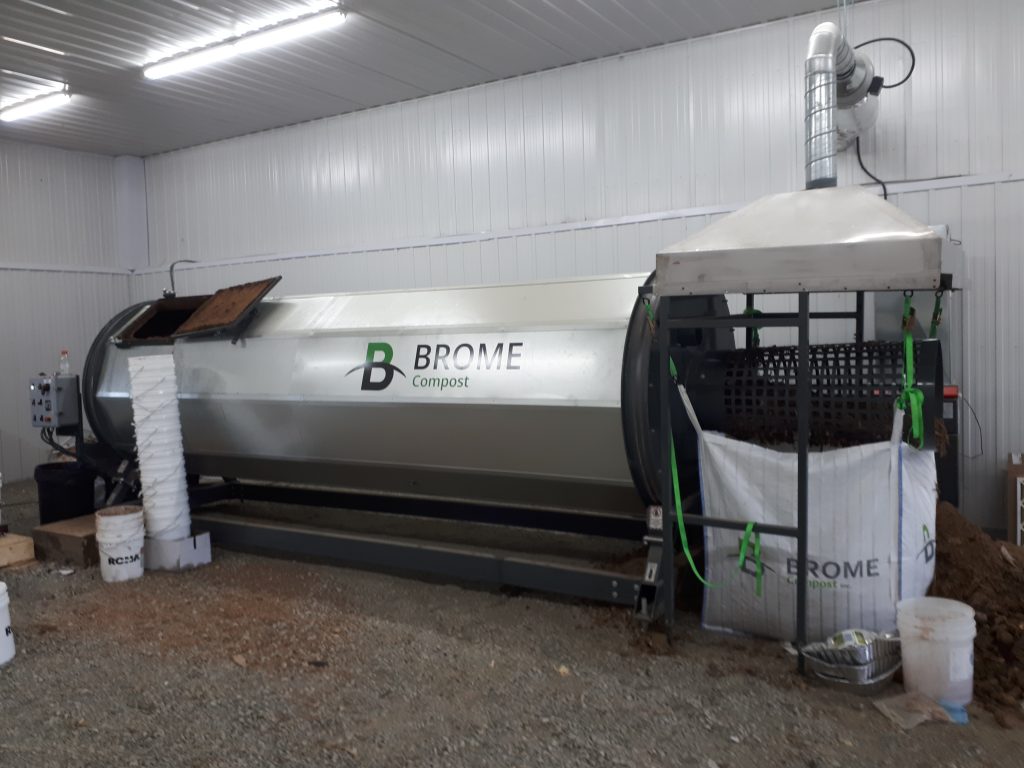
In 2018, the community of Pikogan, located a few kilometers from the Québec town of Amos, became the only the second First Nations community in the province to acquire a composting site. And today, the project’s composting activities are continuing, to the delights of its 570 residents.
To learn more, a visit to a formerly abandoned building is in order. It had previous been used as a place for curing. Since then, it has been renovated to become the Eco-centre and also contains the community’s composting system.
Project has matured over the last two years
Martine Bruneau, Director of Public Works in Pikogan, explains how the project came about: “It’s been two years since we decided to start the composting project with the IDDPNQL (Institut de développement durable des Premières Nations du Québec et du Labrador, ndlr). We worked with Brome Compost in order to find the correct manner to compost [adapted according to] our needs.”
Located inside a heated building that also functions as an ecocentre, the composting system includes a BROME 516 rotating composter drum which is 5 ft wide and 16 ft long, a sifting screen at the exit, and a fume hood to help evacuate the humidity.
Each week, the residents who wish to compost put their organic waste into buckets used specifically for this purpose. On each bucket, a label indicates the collection day (depending on the street), the acceptable materials for composting, as well as those that are not accepted.
The first problem identified by the community? Washing all the buckets, one by one, following their collection. Finally, a local maple syrup business suggested a customized bucket washing station, in order to clean the equipment more quickly. A great way to save time and clean water!
Compost for everyone
Once the buckets have been emptied into the composting vessel, the organic residue is composted within the cylinder over approximately 10 days. The compost’s maturation is then completed in breathable bulk storage bags and in piles. The organic matter is then transformed into mature compost, ready to be used.
“It’s been two years that we compost and people are more and more interested by the compost,” adds Martine Bruneau. “We put our compost outside and people can come help themselves at any time, for their lawn, their flowers, and their vegetable gardens. And it’s free!”
“It’s a wonderful project, which has made it possible to involve the population and improve the management of organic waste material,” explains Paul Larouche, the owner of Brome Compost, with pride. “Obviously we had to start by defining the quantities and the required equipment, provide training in order to properly operate the site and provide follow-up support. But today, all these preparations have paid off!”
Thanks to this wonderful project, the anishinaabe community of Pikogan is ahead of the Abitibi MRC (Regional Municipal Country) with respect to the province’s requirement that 100% of organic matter be recycled by 2022.
Other interesting information :
https://ici.radio-canada.ca/nouvelle/1130410/pikogan-anichinabe-premiere-nation-compostage-abitibi-temiscamingue (article in French only)
 Brome Compost
Brome Compost